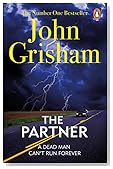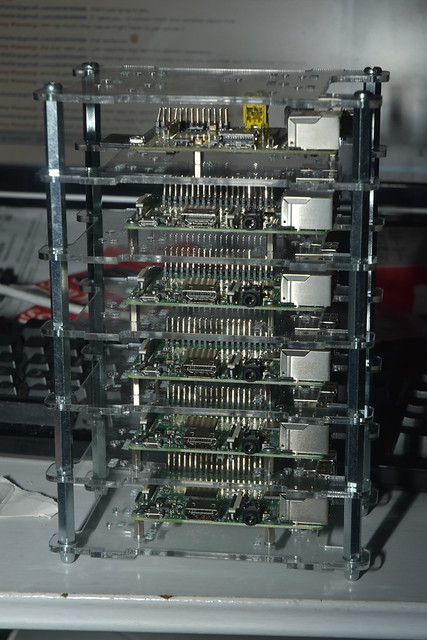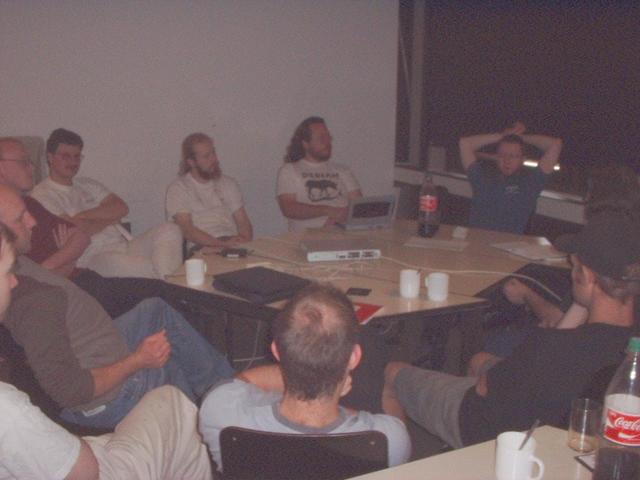
Whilst I managed to read almost sixty books in 2016 here are ten of my favourites in no particular order.
Disappointments this year include Stewart Lee's
Content Provider (nothing like his stand-up), Christopher Hitchens'
And Yet (his best essays are already published) and Heinlein's
Stranger in a Strange Land (great exposition, bizarre conclusion).
The worst book I finished, by far, was Mark Edward's
Follow You Home.
 Animal QC
Gary Bell, QC
Animal QC
Gary Bell, QC
Subtitled
My Preposterous Life, this rags-to-riches story about a working-class boy turned eminent lawyer would be highly readable as a dry and factual account but I am compelled to include it here for its extremely entertaining style of writing.
Full of unsurprising quotes that take one unaware: would you really expect a now-Queen's Counsel to "heartily suggest that if you find yourself suffering from dysentery in foreign climes you do not medicate it with lobster thermidor and a bottle of Ecuadorian red?"
A real good yarn.
 So You've Been Publically Shamed
Jon Ronson
So You've Been Publically Shamed
Jon Ronson
The author was initially recommended to me by
Brad but I believe I started out with the wrong book. In fact, I even had my doubts about this one, prematurely judging from the title that it was merely cashing-in on a fairly recent internet phenomenon like his more recent
shallow take on Trump and the alt-Right but in the end I read
Publically Shamed thrice in quick succession.
I would particularly endorse the audiobook version: Ronson's deadpan drawl suits his writing perfectly.
 The Obstacle is the Way
Ryan Holiday
The Obstacle is the Way
Ryan Holiday
Whilst everyone else appears to be obligated to include Ryan's recent
Ego is the Enemy in their Best of 2016 lists I was actually taken by his earlier "introduction by stealth" to stoic philosophy.
Certainly not your typical self-help book, this is "a manual to turn to in troubling times".
Returning to this work at least three times over the year even splashing out on the audiobook at some point I feel like I learned a great deal, although it is now difficult to pinpoint exactly what. Perhaps another read in 2017 is thus in order
 Layer Cake
J.J. Connolly
Layer Cake
J.J. Connolly
To judge a book in comparison to the film is to do both a disservice, but reading the book of
Layer Cake really underscored just how well the film played to the strengths of that medium.
All of the aspects that would not have worked had been carefully excised from the screenplay, ironically leaving more rewarding "layers" for readers attempting the book. A parallel adaption here might be
No Country for Old Men - I would love to read (or write) a comparative essay between these two adaptions although McCarthy's novel is certainly the superior source material.
 Lying
Sam Harris
Lying
Sam Harris
I've absorbed a lot of Sam Harris's
uvre this year in the form of his books but moreover
via his compelling podcast. I'm especially fond of
Waking Up on spirituality without religion and would rank that as my favourite work of his.
Lying is a comparatively short read, more of a long essay in fact, where he argues that we can radically simplify our lives by merely telling the truth in situations where others invariably lie. Whilst it would take a brave soul to adopt his approach his case is superlatively well-argued and a delight to read.
 Letters from a Stoic
Seneca
Letters from a Stoic
Seneca
Great pleasure is to be found not only in keeping up an old and established friendship but also in beginning and building up a new one.
Reading this in a beautifully svelte hardback, I tackled a randomly-chosen letter per day rather than attempting to read it cover-to-cover. Breaking with a life-long tradition, I even decided to highlight sections in pen so I could return to them at ease.
I hope it's not too hackneyed to claim I gained a lot from "building up" a relationship with this book. Alas, it is one of those books that is too easy to recommend given that it might make one appear wise and learned, but if you find yourself in a slump, either in life or in your reading habits, it certainly has my approval.
 Solo: A James Bond Novel
William Boyd
Solo: A James Bond Novel
William Boyd
I must have read all of the canonical Fleming novels as a teenager and
Solo really rewards anyone who has done so. It would certainly punish anyone expecting a
Goldeneye or at least be a little too foreign to be enjoyed.
Indeed, its really a pastiche of these originals, both in terms of the time period, general tone (Bond is more somber; more vulnerable) and in various obsessions of Fleming's writing, such as the overly-detailed description of the gambling and dining tables. In this universe, 007's restaurant expenses probably contributed signifcantly to the downfall of the British Empire, let alone his waistline.
Bond flicking through a ornithological book at one point was a cute touch
 The Subtle Art of Not Giving A F*ck
Mark Manson
The Subtle Art of Not Giving A F*ck
Mark Manson
Certainly a wildcard to include here and not without its problems,
The Subtle Art is a curious manifesto on how to approach life. Whilst Manson expouses an age-old philosophy of grounding yourself and ignoring the accumulation of flatscreen TVs, etc. he manages to do so in a fresh and provocative "21st-centry gonzo" style.
Highly entertaining, at one point the author posits an alternative superhero ("Disappointment Panda") that dishes out unsolicited and uncomfortable truths to strangers before simply walking away: "You know, if you make more money, that s not going to make your kids love you," or: "What you consider friendship is really just your constant attempts to impress people."
Ouch.
 The Fourth Protocol
Frederick Forsyth
The Fourth Protocol
Frederick Forsyth
I have a crystal-clear memory from my childhood of watching a single scene from a film in the dead of night: Pierce Brosnan sets a nuclear device to detonate after he can get away but a double-crossing accomplice surreptitiously brings the timetable forward in order that the bomb also disposes of him
Anyway, at some point whilst reading
The Fourth Protocol it dawned on me that this was that book. I might thus be giving the book more credit due to this highly satisfying connection but I think it stands alone as a superlative political page-turner and is still approachable outside the machinations of the Cold War.
 The Partner
John Grisham
The Partner
John Grisham
After indulging in a bit too much non-fiction and an aborted attempt at
The Ministry of Fear, I turned to a few so-called lower-brow writers such as Jeffrey Archer, etc.
However, it was
The Partner that turned out to be a real page-turner for somewhat undefinable reasons. Alas, it appears the rest of the author's output is unfortunately in the same vein (laywers, etc.) so I am hesitant to immediately begin others but judging from various lists online I am glad I approached this one first.
 Shogun: The First Novel of the Asian saga
James Clavell
Shogun: The First Novel of the Asian saga
James Clavell
Despite its length, I simply couldn't resist returning to
Shogun this year although it did fatigue me to the point that I have still yet to commence on its sequel,
Tai-Pan.
Like any good musical composition, one is always rewarded by returning to a book and I took great delight in uncovering more symbolism throughout (such as noticing that one of the first words Blackthorne learns in Japanese is "truth") but also really savouring the tragic arcs that run throughout the novel, some beautiful phrases ("The day seemed to lose its warmth ") and its wistful themes of inevitability and karma.
 I got myself a bunch of Raspberry Pi 3s a short while ago:
I got myself a bunch of Raspberry Pi 3s a short while ago:
 ...the idea being that I can use those to run a few experiments on.
After the experiment, I would need to be able to somehow remove the
stuff that I put on them again. The most obvious way to do that is to
reimage them after every experiment; but the one downside of the
multi-pi
cases
that I've put them in is that removing the micro-SD cards from the Pis
without removing them from the case, while possible, is somewhat fiddly.
That, plus the fact that I cared more about price than about speed when
I got the micro-SD cards makes "image all the cards of these Raspberry
Pis" something I don't want to do every day.
So I needed a different way to reset them to a clean state, and I decided to
use ansible to get it done. It required a bit of experimentation, but
eventually I came up with this:
...the idea being that I can use those to run a few experiments on.
After the experiment, I would need to be able to somehow remove the
stuff that I put on them again. The most obvious way to do that is to
reimage them after every experiment; but the one downside of the
multi-pi
cases
that I've put them in is that removing the micro-SD cards from the Pis
without removing them from the case, while possible, is somewhat fiddly.
That, plus the fact that I cared more about price than about speed when
I got the micro-SD cards makes "image all the cards of these Raspberry
Pis" something I don't want to do every day.
So I needed a different way to reset them to a clean state, and I decided to
use ansible to get it done. It required a bit of experimentation, but
eventually I came up with this:

 My monthly report covers a large part of what I have been doing in the free software world. I write it for
My monthly report covers a large part of what I have been doing in the free software world. I write it for  Whilst I managed to read almost sixty books in 2016 here are ten of my favourites in no particular order.
Disappointments this year include Stewart Lee's
Whilst I managed to read almost sixty books in 2016 here are ten of my favourites in no particular order.
Disappointments this year include Stewart Lee's 










 A brand-new release of
A brand-new release of  To be clear: for Stretch we recommend that reproducible builds are done in the same build path as the "original" build.
Finally, and just for our future references, when we enabled build path variation on Saturday, August 20th 2016, the numbers for unstable were:
To be clear: for Stretch we recommend that reproducible builds are done in the same build path as the "original" build.
Finally, and just for our future references, when we enabled build path variation on Saturday, August 20th 2016, the numbers for unstable were:
 seems I've neglected both my blog & my RC bug fixing activities in the
last months. anyway, since I still keep track of RC bugs I worked
on, I thought I might as well publish the list:
seems I've neglected both my blog & my RC bug fixing activities in the
last months. anyway, since I still keep track of RC bugs I worked
on, I thought I might as well publish the list:
 This isn't actually answering the question, but it's close. It's also horrible, so whoever adopts
This isn't actually answering the question, but it's close. It's also horrible, so whoever adopts
 Last week was quite split into many smaller tasks - working on our libraries (both
Last week was quite split into many smaller tasks - working on our libraries (both  Started in 2008,
Started in 2008,  A disjunct set of people, who I will also not name, were very disappointed to find out that
A disjunct set of people, who I will also not name, were very disappointed to find out that  So. I typo ed up some template code the other day. And once again I learned the importance of using several c++ compilers.
Here is a very reduced version of my code:
So. I typo ed up some template code the other day. And once again I learned the importance of using several c++ compilers.
Here is a very reduced version of my code:
 It's 2004 and I'm in Oldenburg DE, working on the Debian Installer. Colin and I
pair program on partman, its new partitioner, to get it into shape. We've
somewhat reluctantly decided to use it. Partman is in some ways a beautful
piece of work, a mass of semi-object-oriented, super extensible shell code that
sprang fully formed from the brow of Anton. And in many ways, it's mad, full of
sector alignment twiddling math implemented in tens of thousands of lines of
shell script scattered amoung hundreds of tiny files that are impossible to keep
straight. In the tiny Oldenburg Developers Meeting, full of obscure hardware
and crazy intensity of ideas like porting Debian to VAXen, we hack late into
the night, night after night, and crash on the floor.
It's 2004 and I'm in Oldenburg DE, working on the Debian Installer. Colin and I
pair program on partman, its new partitioner, to get it into shape. We've
somewhat reluctantly decided to use it. Partman is in some ways a beautful
piece of work, a mass of semi-object-oriented, super extensible shell code that
sprang fully formed from the brow of Anton. And in many ways, it's mad, full of
sector alignment twiddling math implemented in tens of thousands of lines of
shell script scattered amoung hundreds of tiny files that are impossible to keep
straight. In the tiny Oldenburg Developers Meeting, full of obscure hardware
and crazy intensity of ideas like porting Debian to VAXen, we hack late into
the night, night after night, and crash on the floor.


 What happened about the
What happened about the